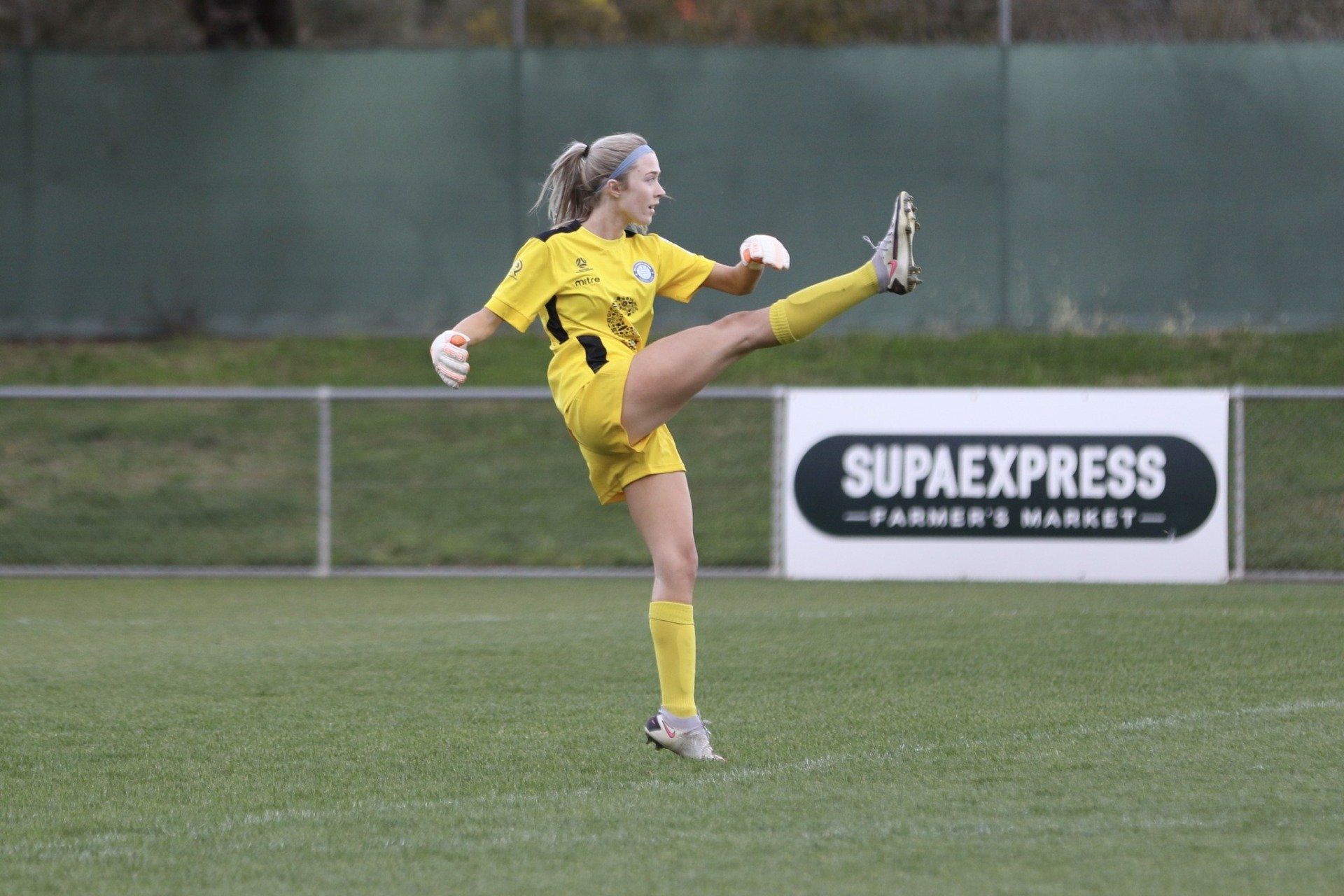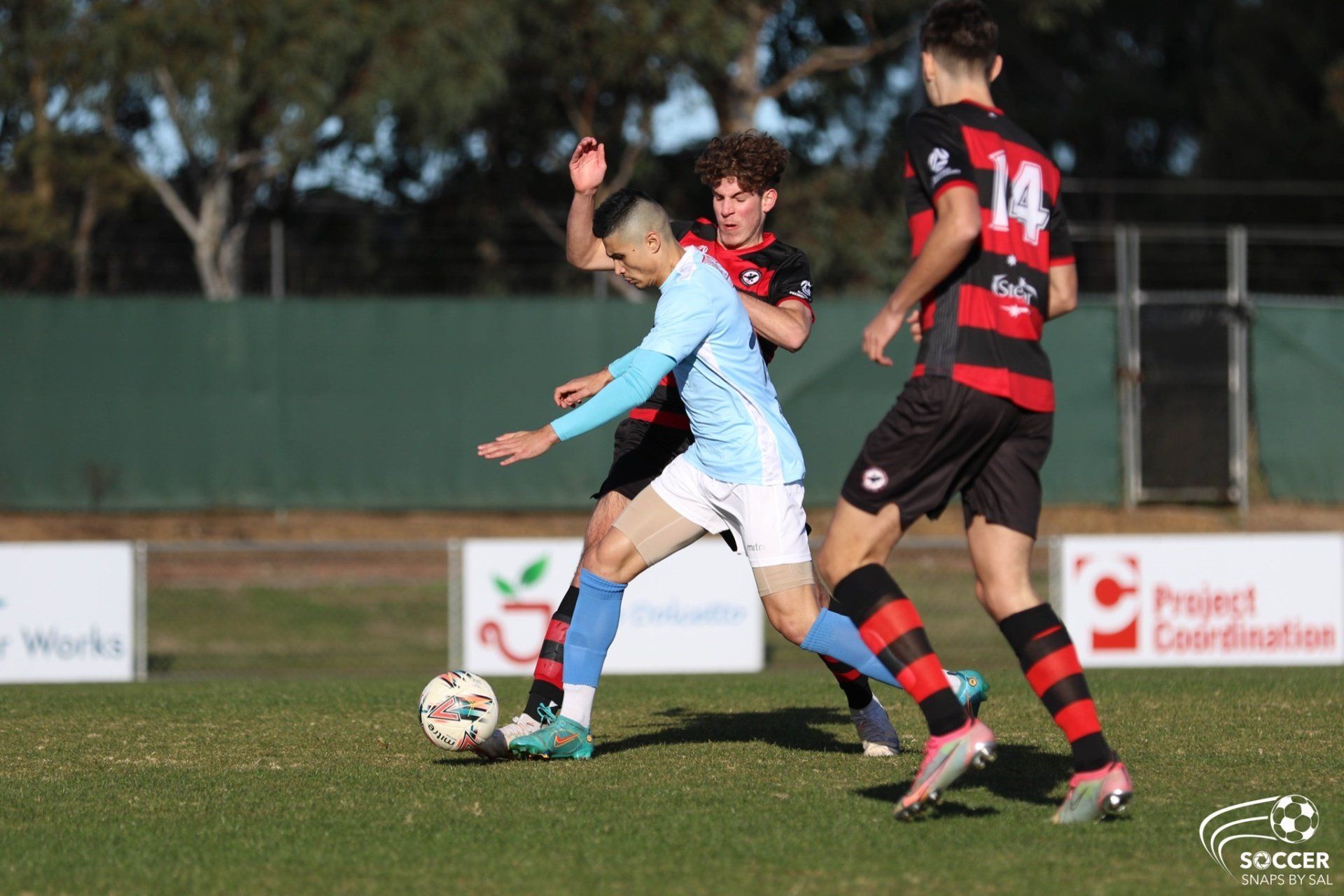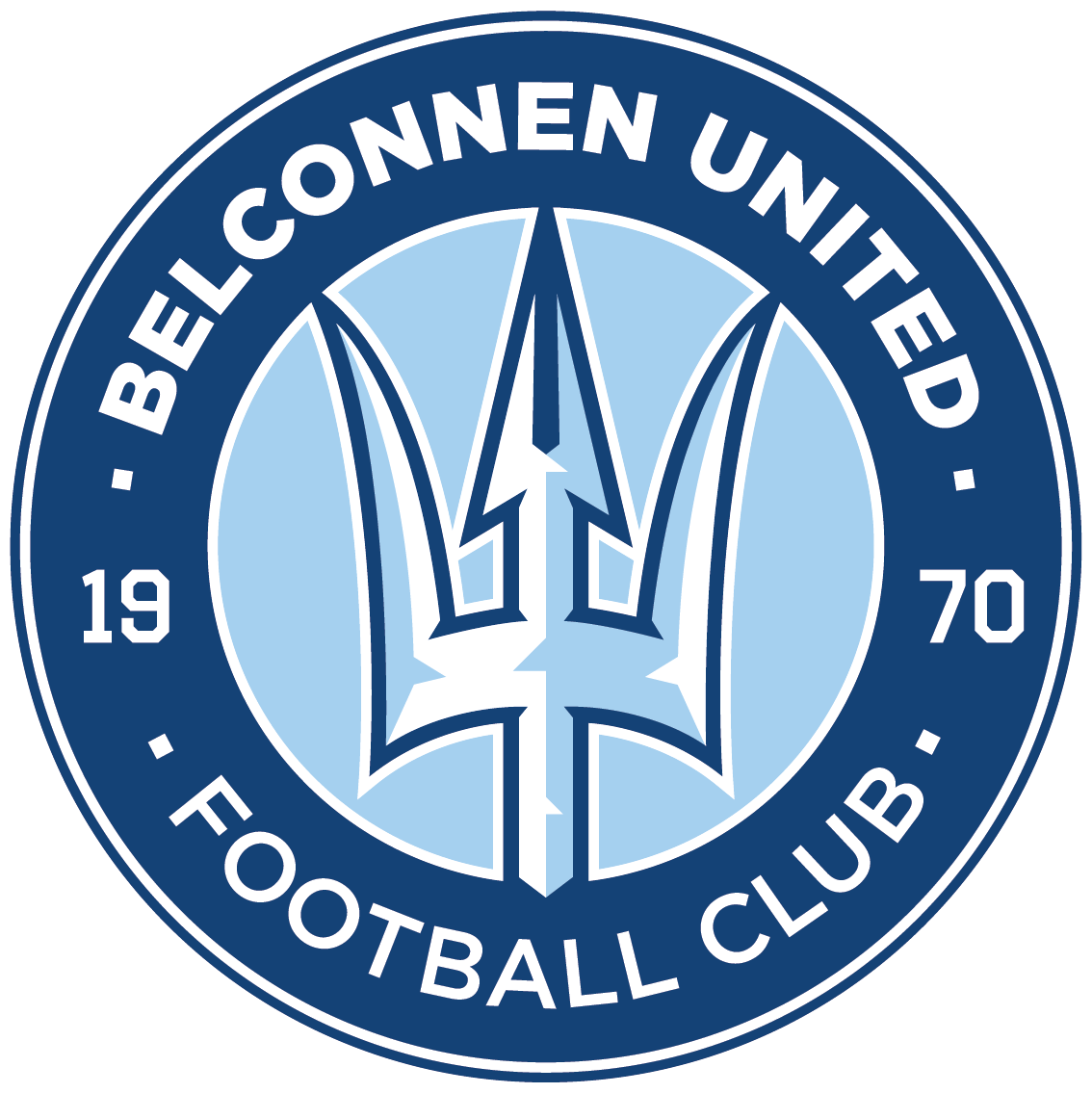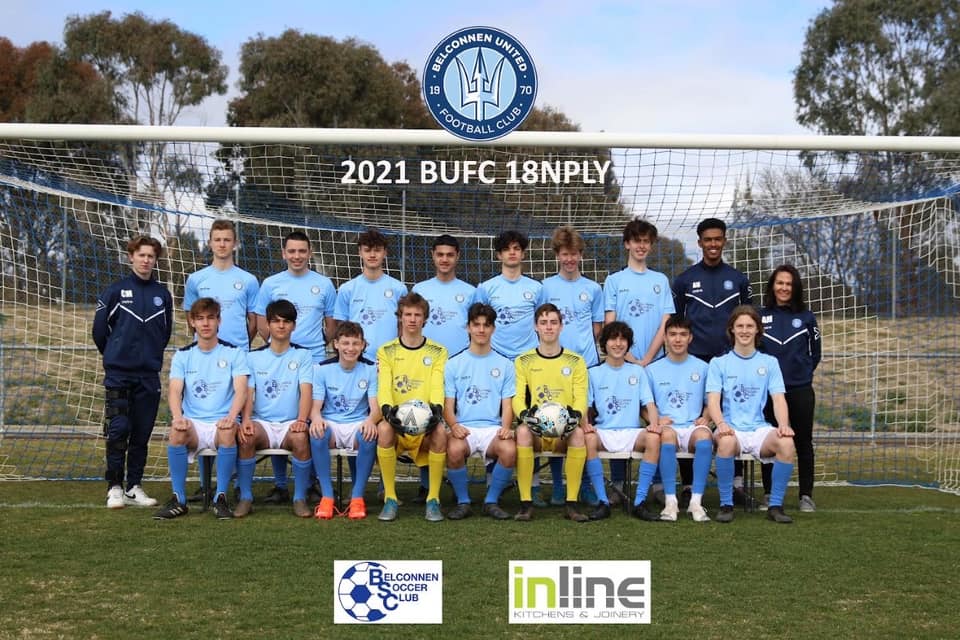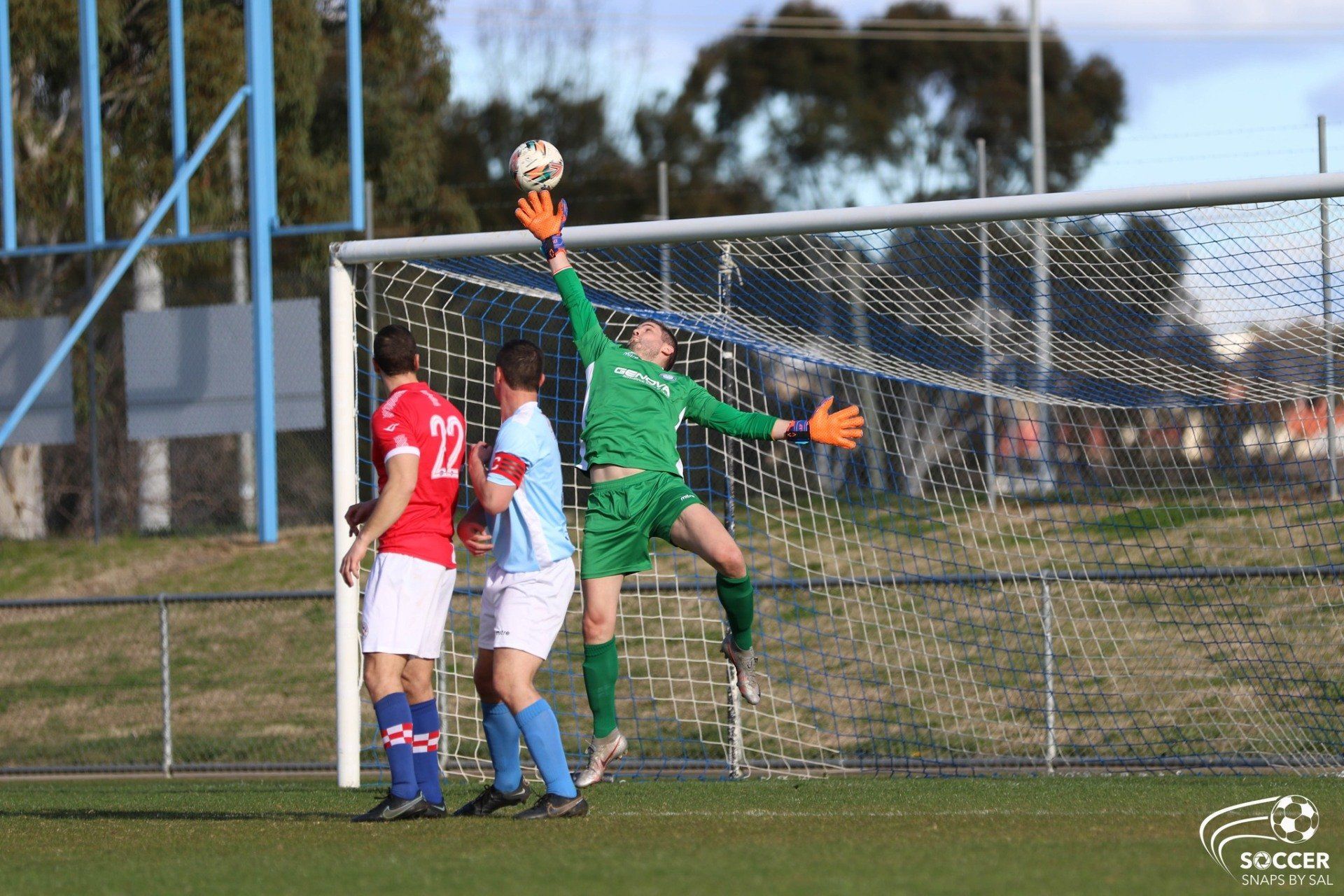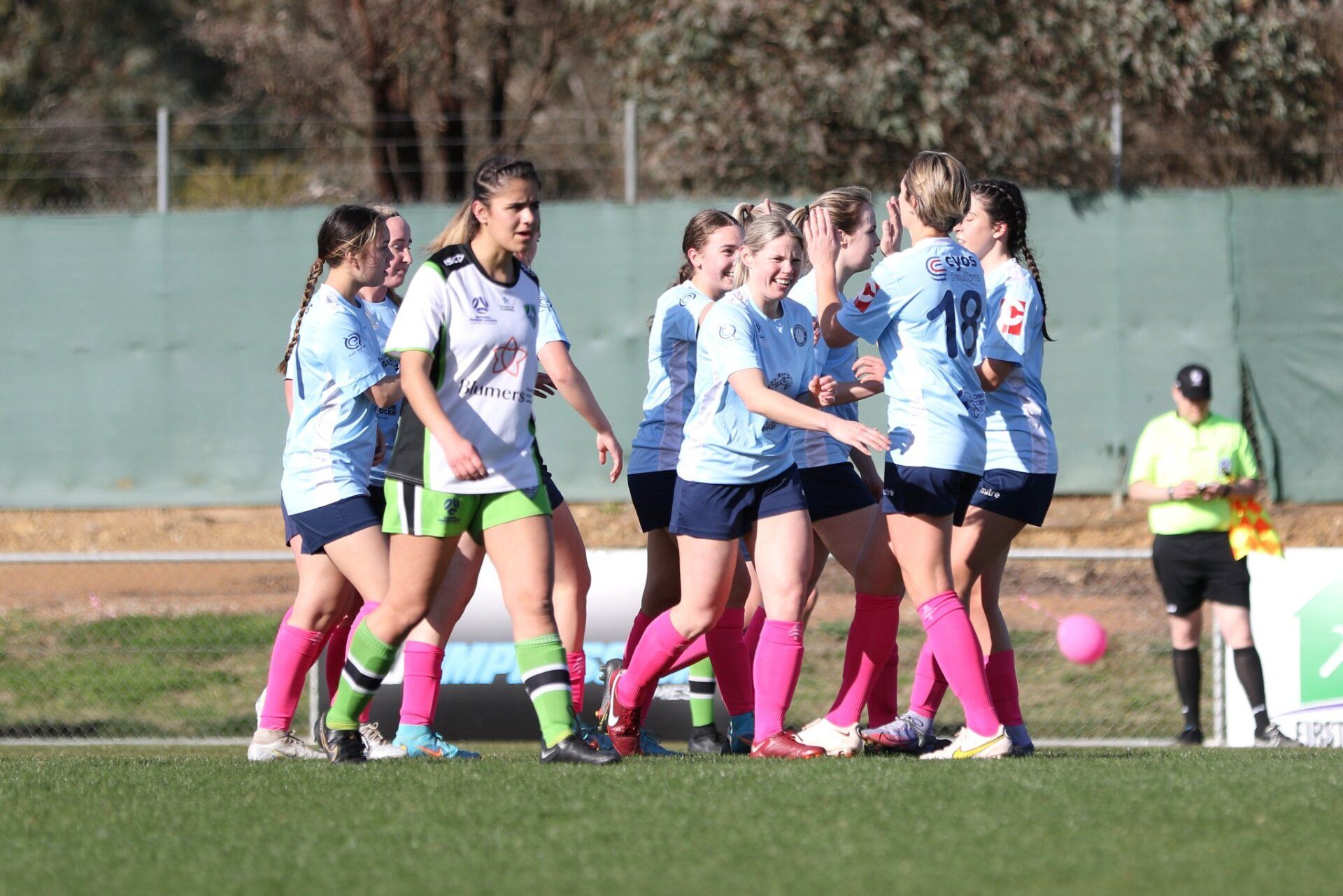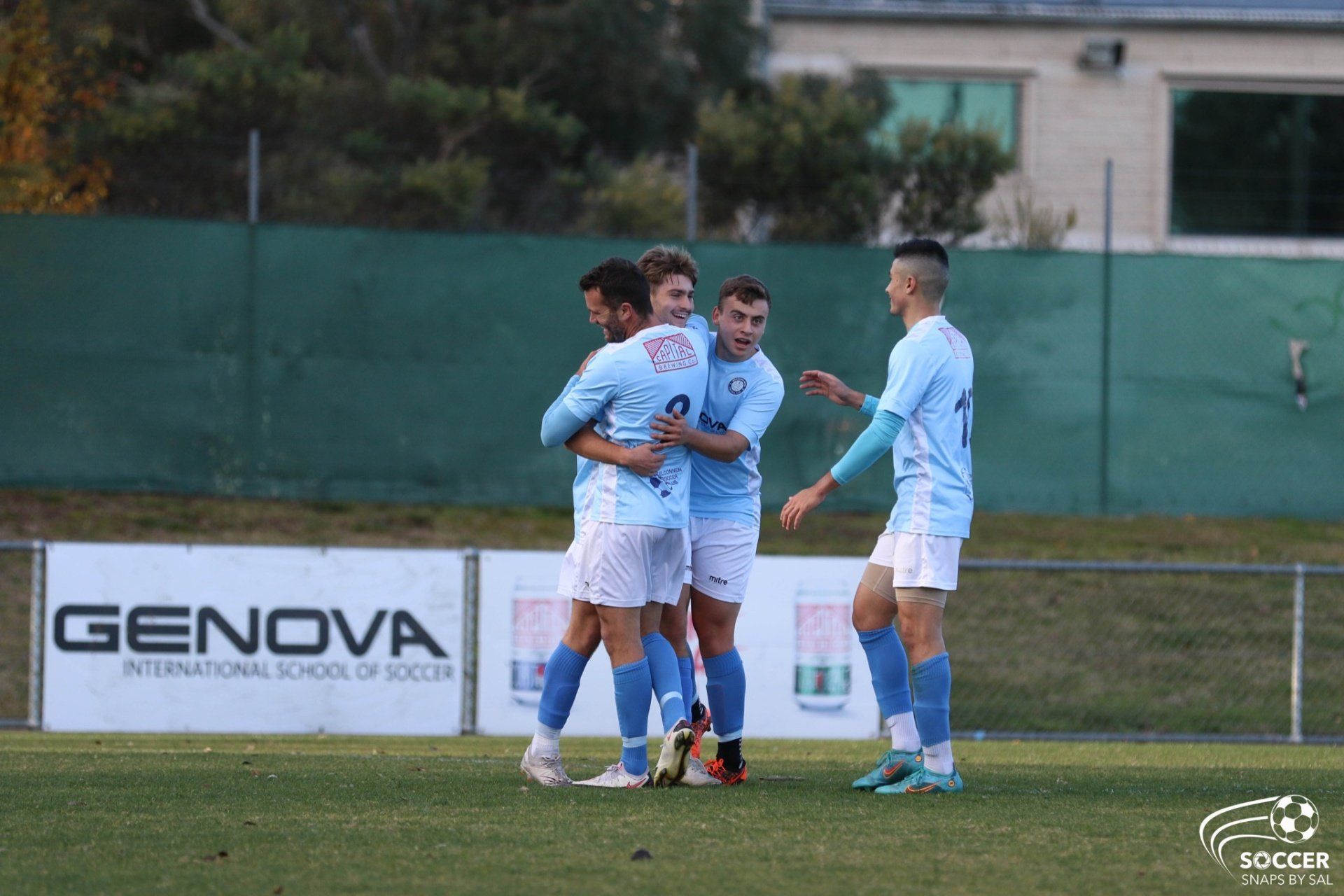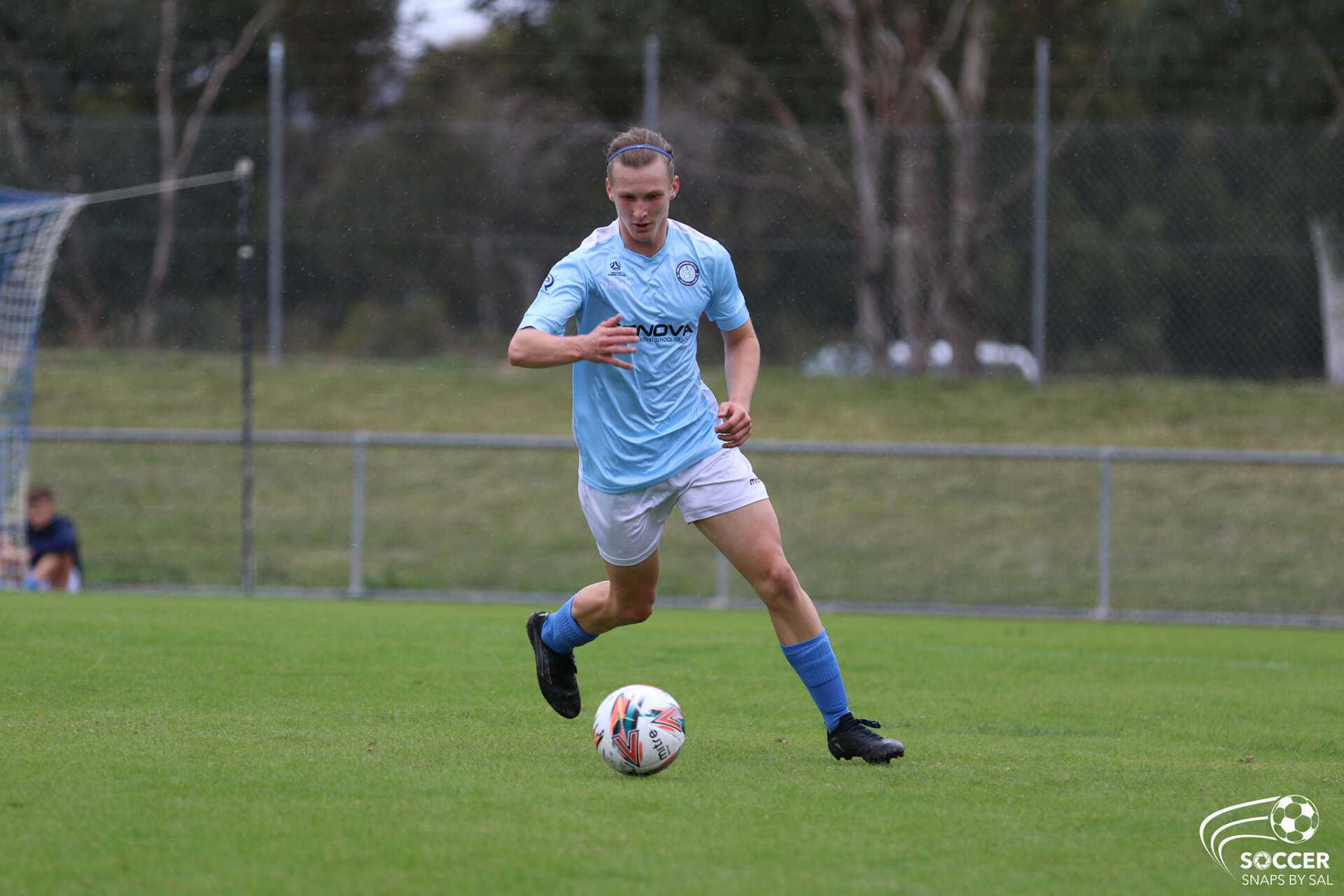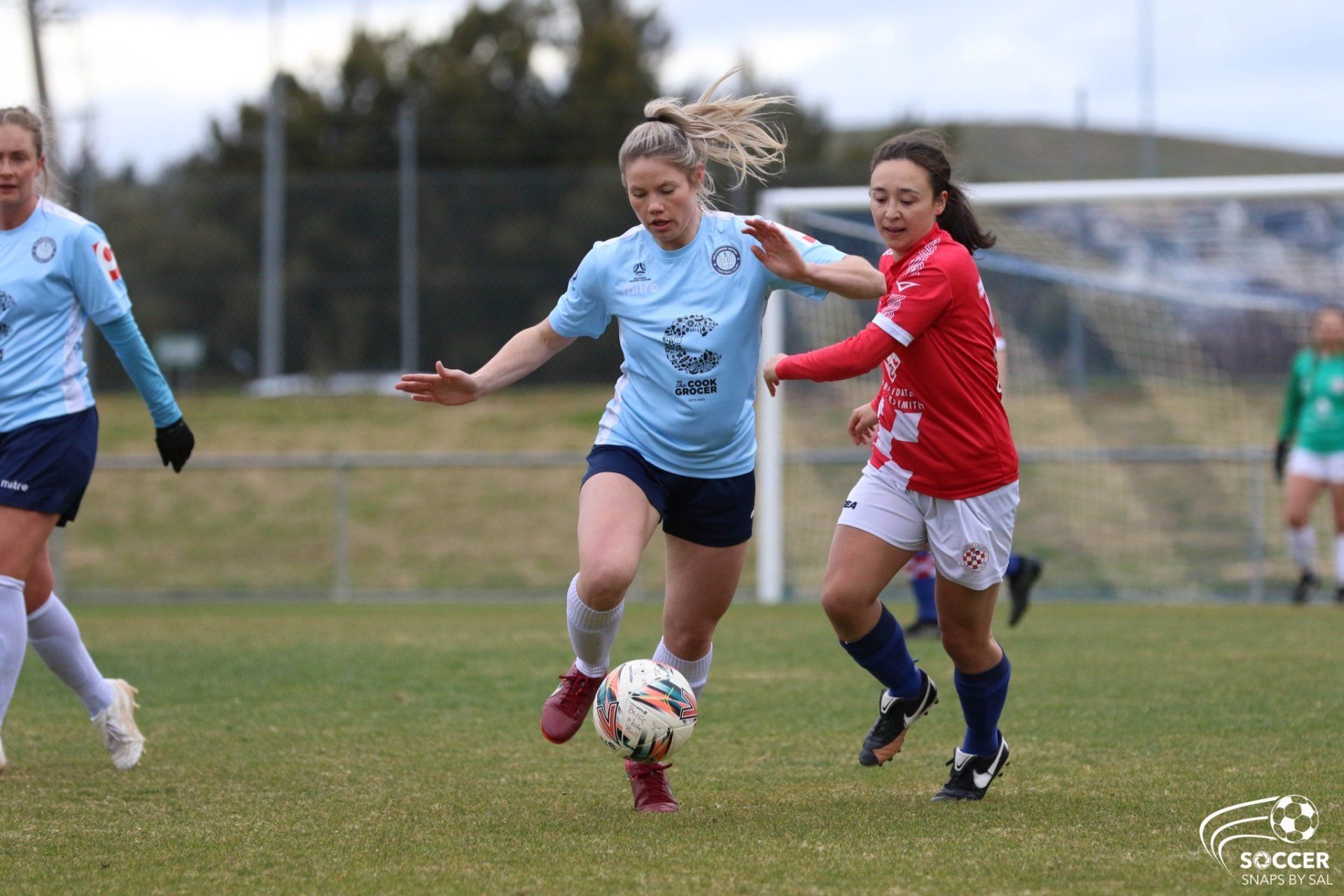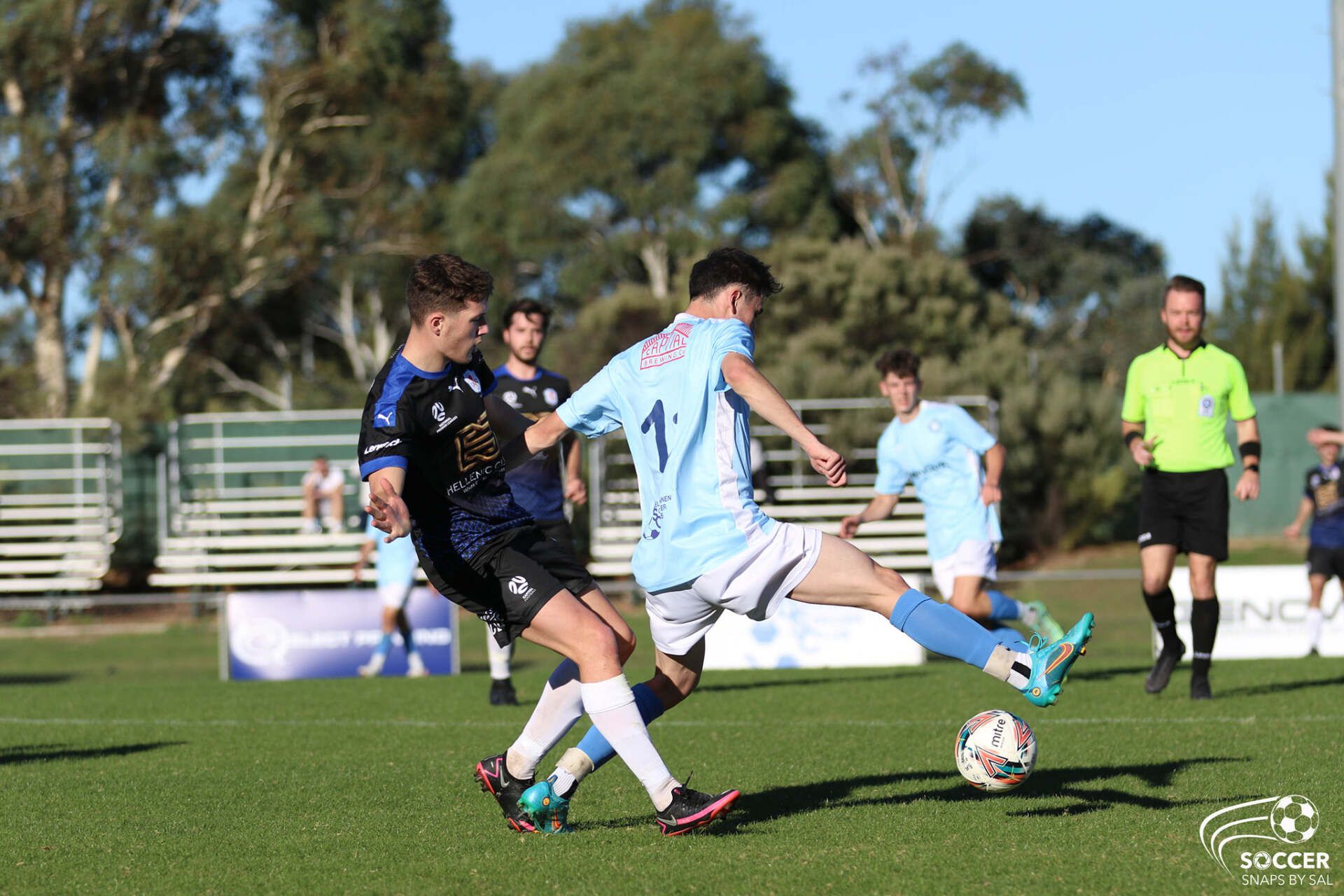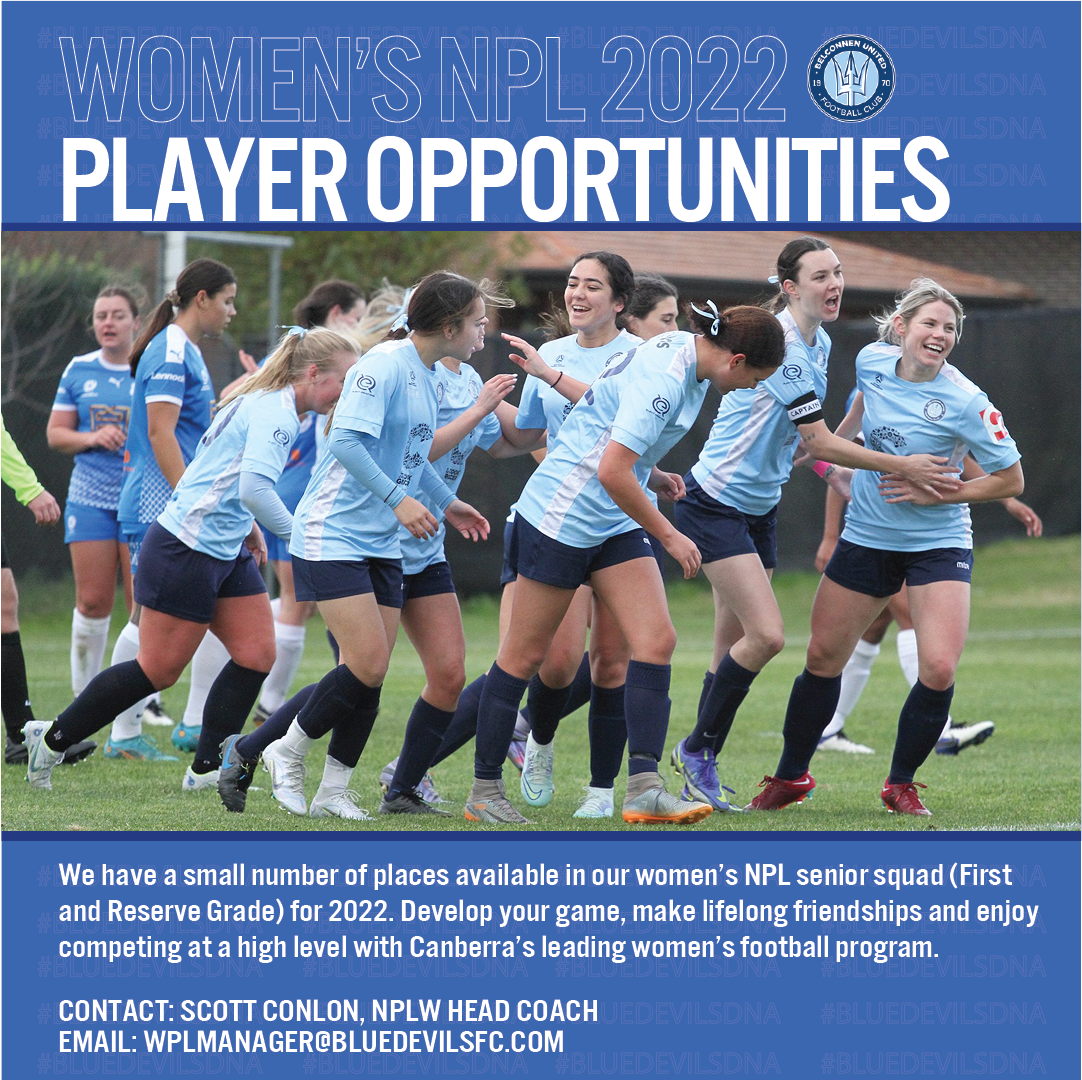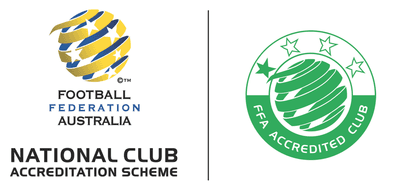Interview with Michael Zakoski, Head Coach, NPL Women’s First Grade, Belconnen United Football Club
From coaching a local Canberra school football team to working alongside current and ex-professional managers in Italy and Spain, Michael Zakoski has gained more experience at a young age than many seasoned coaches twice his age. So what makes Michael tick? We got an insight into our NPLW head coach as he talks about his football philosophy, his approach to developing high performing players, his vision for the BUFC first grade women’s team and his belief in the underdog.
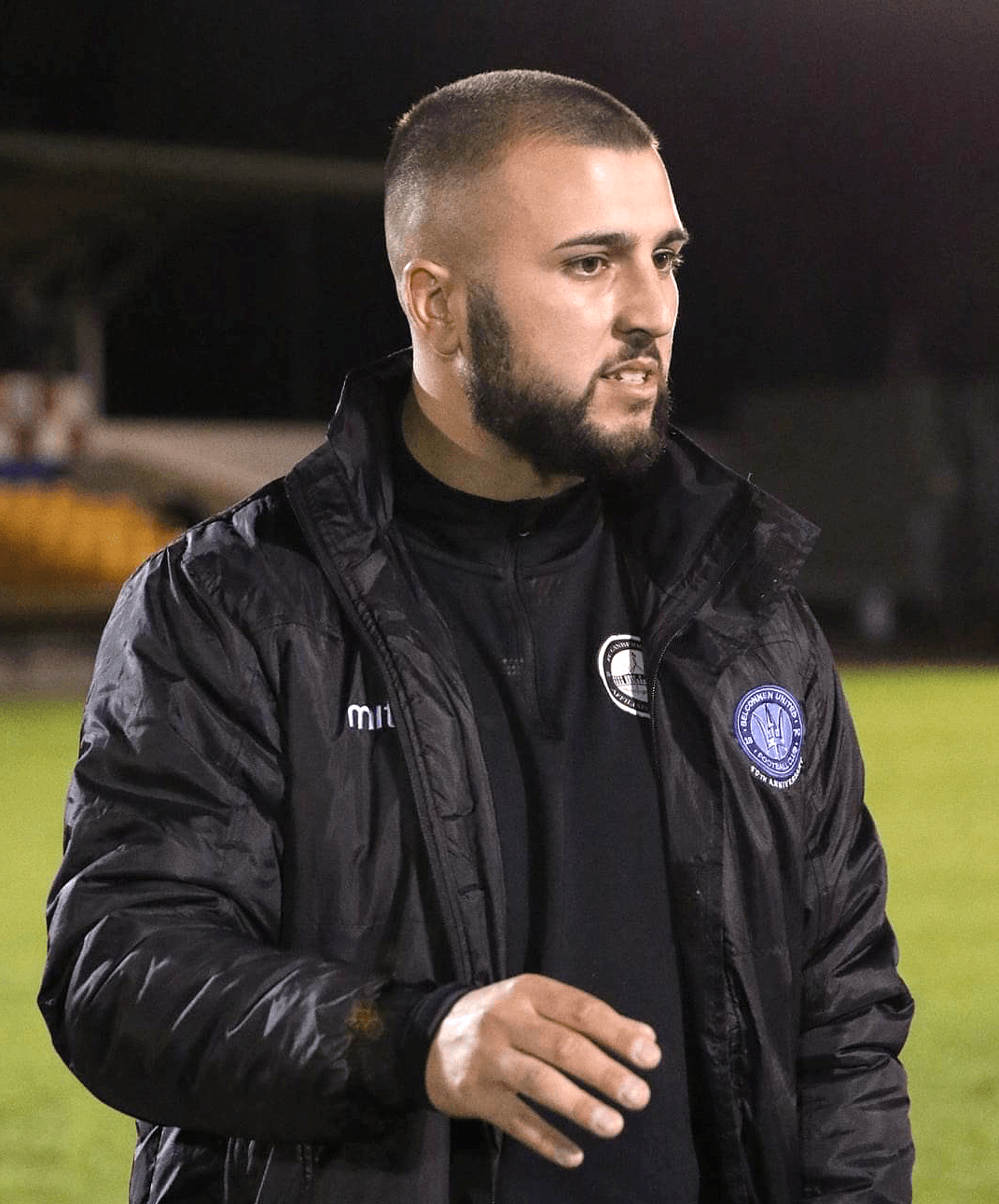
Why did you want to become a coach?
Growing up in a disciplined household where education was
the priority, I grew attached to the game from an academic and tactical
perspective, intrigued with how the link between player management and tactics
brought success in the game.
I have always had an admiration for world leaders and how their leadership models have inspired change. Through my passion for the game and intent to be the change I see in the world; I was fortunate enough to find a career pathway that brought me everything anyone could ask for in their profession; football management.
What is your coaching philosophy?
My football philosophy is expressed through creativity and
freedom; allowing players to grow both on and off the pitch and be challenged
to problem solve. Similar to my philosophy in life, I believe that players
deserve the chance to express their ability and that growth occurs best
alongside experienced mentors.
What is your team’s style of play?
BUFC NPLW sides will play with an emphasis on penetrative
attacking football that maintains effective and controlled possession in
central areas. We will focus on forward passing, forward running and forward
thinking as often as possible. We will press the ball as high up the pitch as
the game allows and be flexible in our team shape. Our pressing system is
underpinned by a quick transition mentality and defending through aggressive,
collective and intelligent decisions. Our players must be competent in
tight areas and develop match winning skills. They must develop good game
understanding in possession and in transition to enable them to progress
through to higher standards of football.
What is your vision for BUFC NPLW? How will you define success?
The primary vision is to create evident and genuine
pathways from our U13 through to our NPLW Senior Team. Development is often
understated in the modern game and there is a big emphasis on player
development and producing homegrown talent at the club this season, across
respective programs. Thus far, we have seen a number of debuts across First and
Reserve Grade, more so notably in the ‘bigger games’ against traditional top
competitors, further supporting the genuine support for player opportunities.
From a senior perspective, it is important to remember that we are very much
the ‘end product’ of our development period of players at the club, which is
results driven. We will always endeavour to find the balance between success
and development and be driven to play a brand of football that will be
remembered for the years to come.
In your opinion, what makes an excellent football player?
As part of our vision and philosophy, we believe that an
‘excellent player’ is one that encompasses all match winning components of
being a destroyer, creator and goal scorer. A player who shows strong evidence
across all four corners of the game, being technically, tactically, physically
and psychologically sound will provide them the tools to reach higher levels of
the game.
What does your bench look like during matches?
Our bench is well-organised and we are extremely thankful
for the work of our team managers, Franca Pangallo and Mel Pring, who not only
bring a great deal of professionalism but the honest feedback and second
opinion we need on updated regulations prior, during and post-match. The
intensity and pressures of the match can often create a tense environment, which
is always relieved through the positive nature of our team physio, Dan! With
his phone chime every 15 minutes, players are reminded to be up and active, in
preparation for coming off the bench.
Coaching the first team is a huge responsibility. How do you handle
the pressure of coaching first grade?
I’ve been fortunate to have progressed through the
respective ages and grades since beginning my coaching career, working with
players as young as 13, through to those at senior level; learning along the way
that different teams require different measures of player management and each
season will entail different pressures, whether that be from results, injuries,
team management or even match preparation. The pressure is something my
coaching staff thrives on, it’s what ensures that each match is taken with
absolute dedication and that nothing is left out on the pitch at the end of the
90+ minutes. No stone is left unturned in preparation for the match and the
pressure in preparation is what allows us to consider every possible outcome to
secure the strongest possible result.
How do you balance coaching, work and family?
The best way to respond to this is how I view football, an
imperfect sport met with a near perfect mindset. In the game, it is rare we
will see players have 100% conversation rates, passing rates etc, though we
commit to every match with the desire of reaching as close as possible to
perfect. This is the same approach I take towards the balance of coaching, work
and family – dedicating near perfect amounts of time to each important aspect
of my life.
What do you like to do when you’re not coaching?
I am an R&B, Hip Hop, pop culture enthusiast and often
enjoy spending my time watching dance performances and immersing myself in the
culture and history of the music. Growing up in a family who migrated to
Australia from Macedonia in the 50’s-60’s provided me with opportunities in
life that I may have otherwise not have had living overseas and, because of
that, I take a keen interest in ‘underdog’ stories and very much appreciate the
resilience shown by many of these characters in their drive to be the change
they want to see. In that, I relate to the culture of the music and recognise
the challenges in front of their profession and how that was influenced through
resilience and persistence.
Where
have you gained your influence from? Who do you look up to and view as a mentor
and why?
My biggest influence in the early stages of my coaching
career has been driven through leadership traits and tacticians. My earliest
inspiration and reason for why I am in love with the game is Brian Clough.
Controversial, brave, mastermind. As an 18-year-old working in an industry dominated
by adults, you often find that you won’t have access to the best players or
even enough credibility to take on the bigger sides, which in turn leaves you
with the foundation of our philosophy, desire. In my earliest coaching
experience, I was fortunate enough to lead St. Edmund’s College to their first
U18 Division 1 Championship in the 60-year history of the club and, in this
season, I am thankful for the hard work and determination the players showed in
compensation for the lack of natural ability when compared with other clubs. I
found many similarities in that of my early coaching days to that of Brian’s
when taking Derby to the semi-final of the Champions League, as well as
Nottingham Forest to consecutive Champions League medals.
In addition to Clough, Sir Alex Ferguson would be the next manager at professional level to leave a lasting impression; a father figure, mentor and someone who was able to re-invent a squad three times over in an ever-changing environment of the game. Again, similarly being raised in a low socio-economic neighbourhood and working at the shipyards before reaching his next phase; often dubbed as being brought up with the silver spoon.
I’ve been fortunate enough to work alongside a number of current and ex-professional managers in my tenure across Spain and Italy, though most notably alongside Kyle Copp (Former Swansea City Midfielder and Wales U17 Captain), who would often give advice in the most casual of settings. I recall a time sitting on the couch late in the evening talking about the influence of money at a young age at the top level and how the influence of player management is crucial in this environment. The impacts of the real world on player performance and influence on team culture is understated and, after a number of conversations, agreed that player management is a hidden key to success where ability may be out of reach.
At a local level, breaking into the NPL U20 and U23 in 2019 and 2020 allowed me to grow not only as a coach but as a person. Coaching in an industry that is often dominated by older and experienced people can be quite confronting at a young age, importantly when it is in a result driven business. However, at the conclusion of my time at Canberra Olympic and in my transition to the role of NPLW Head Coach at Belconnen, there are three people in particular who have left a lasting impression and have allowed me to further expand my coaching philosophy and even playing statements.
- Fabian Miceli, Head Coach NPL First Grade Mens, Belconnen United has
been an exceptional colleague in the game and someone who I can proudly call my
friend both on and off the pitch. In recent seasons, we would be up against one
another in the U23 competition, respectively winning Minor Premierships in 2019
and 2020 and I admire him for the healthy competition we always created. Often at
times we would watch one another’s matches, give each other support and advice
and found that we could grow by sharing and that football is not a secret, the
more we share, the more we learn, the more we improve.
- Steve Ujdur, Technical Director, Canberra Olympic, another who has
been a mentor for me specifically off the pitch and someone who’s shared honest
feedback and helped me grow in my matchday management with referees. It’s often
understated how important it is to conduct yourself in the appropriate manner
and with Steve’s help, I was not only able to reflect on my own representation
on the touchline, but also improve the information shared on the go; all in the
interest of securing a result and boosting the quality of performance.
- Andy Bernal, Former Socceroo, Former Captain of Reading, first Australian footballer to play their trade in Spain. Andy provides unmatched advice, importantly being one of the only people in the city to reach the highest level of the game. In what has been a challenging few seasons up against experienced managers and quality opposition, Andy has given honest feedback on how to approach these matches in the most effective manner, but also the necessary support to take risks where others may be more reserved. The reality is that we want to create an environment that will allow us to increase the possibilities of producing more Socceroos and Matildas and through this, we want to expose as many of our young players at the highest level where possible. This is among the many strands of our vision and philosophy and one of the foundations of sustained success over long periods of time.
As a final note, I would like to share a quote that represents our football vision and philosophy in one sentence:
'If you want to live from football, you have to live for football.'
